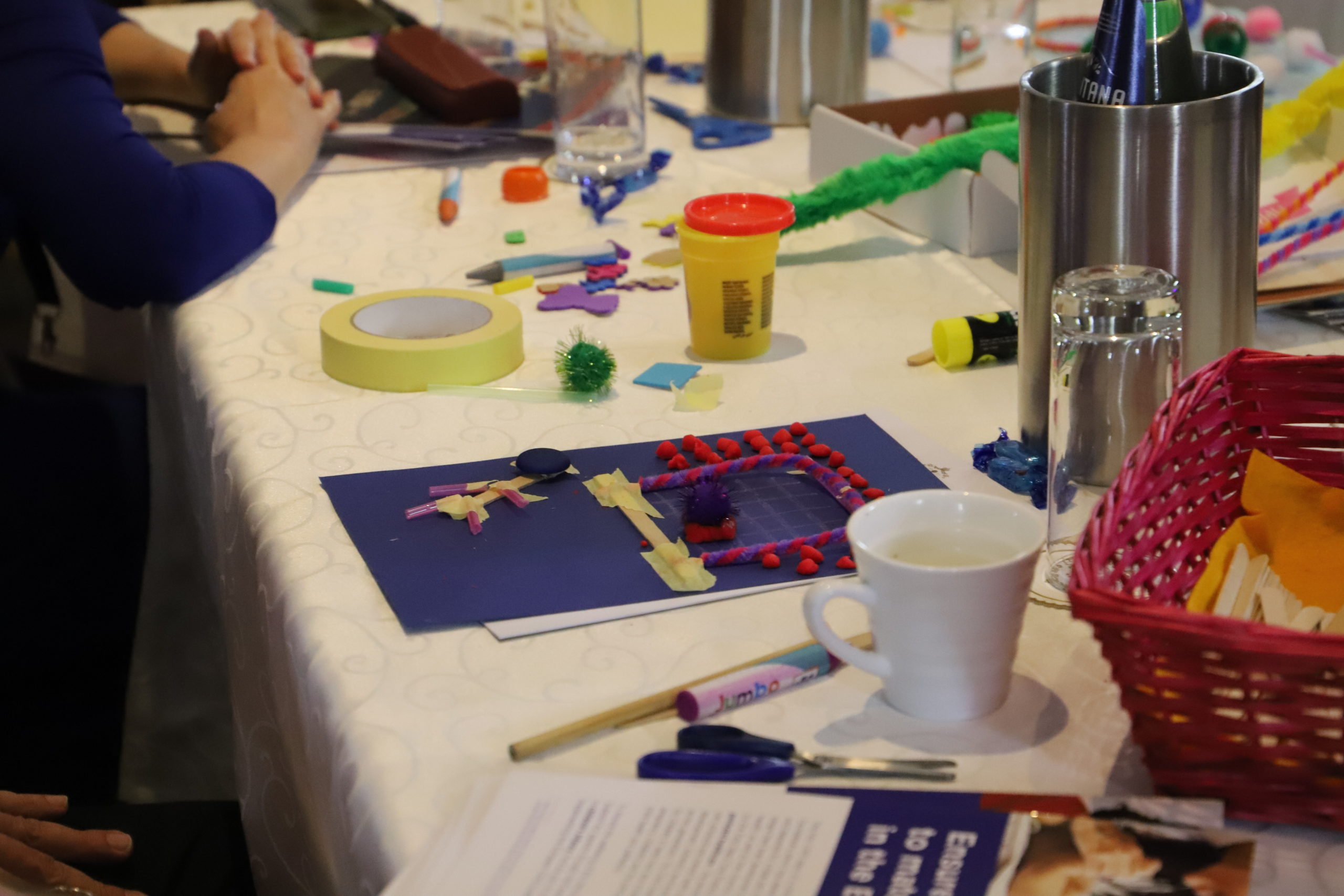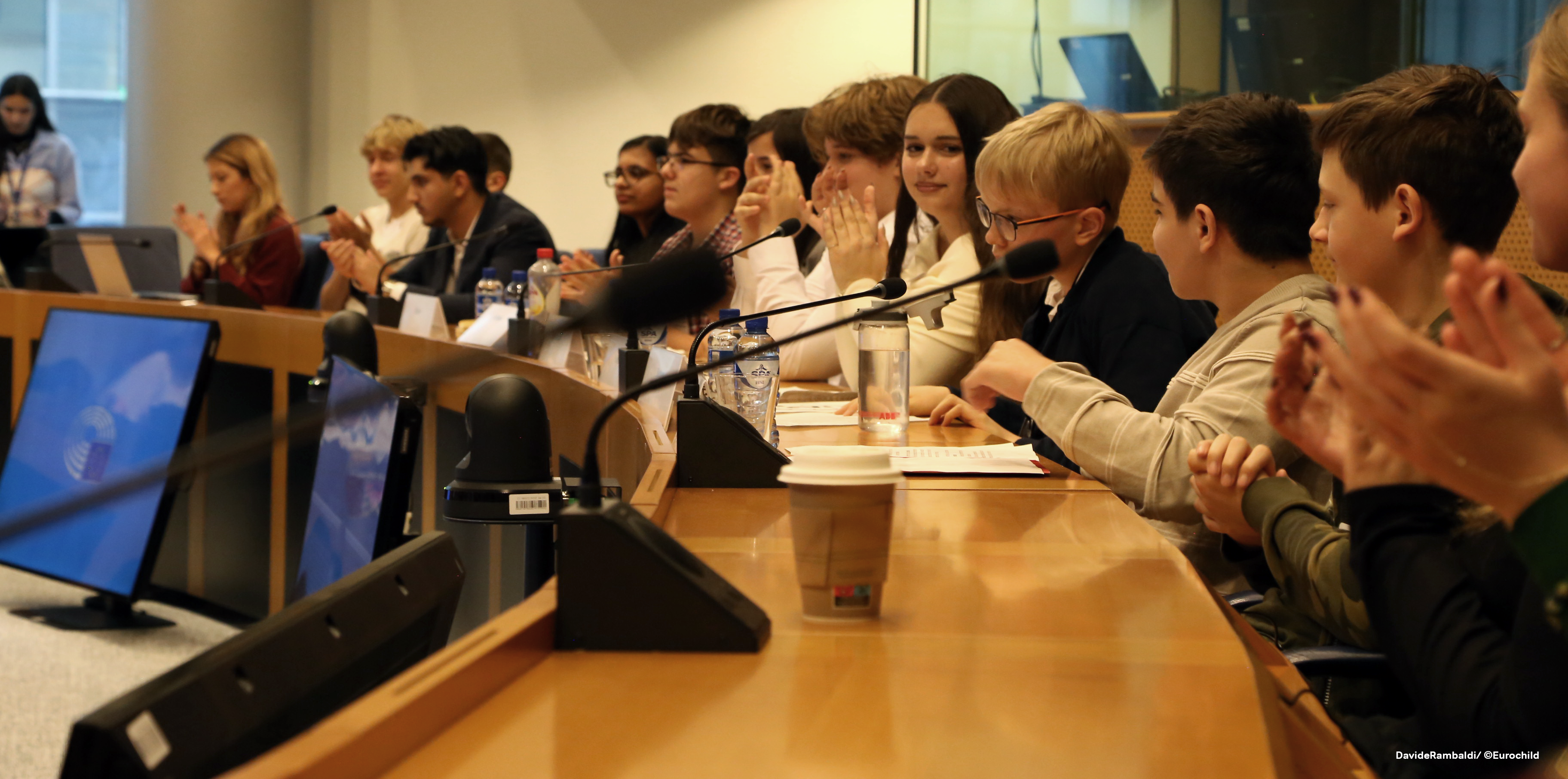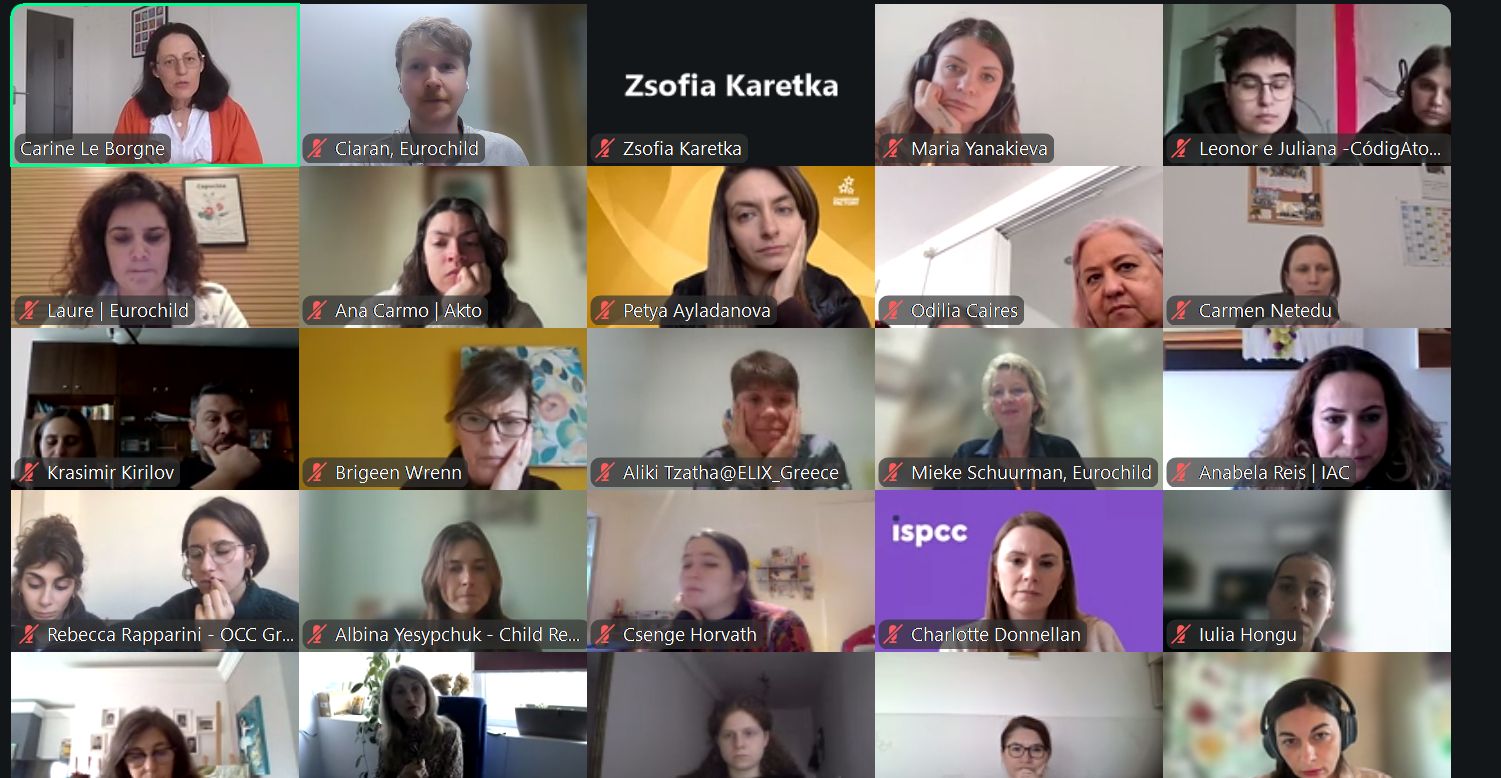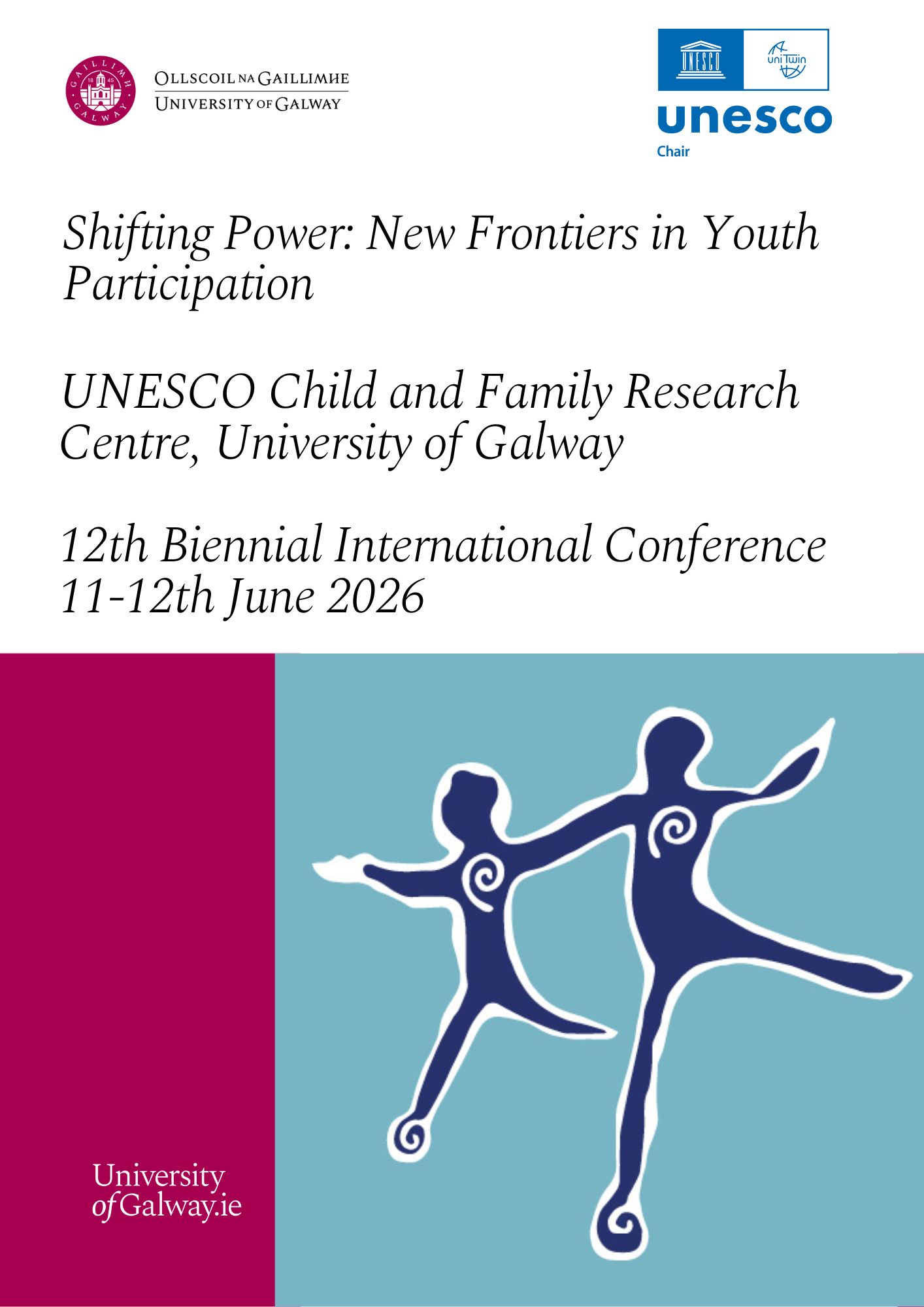A unified approach to tackling poverty and promoting children's rights in Europe
In this blog, Eurochild Head of Programmes, Agata D’Addato, explains that tackling child poverty demands a unified and comprehensive strategy that places children's rights and well-being at the forefront, starting from their earliest years and integrating this priority into the wider European agenda.
Key European challenges regarding childhood
Child poverty in the EU is an ongoing and urgent crisis. According to Eurostat, in 2023, 24.8% of children in the EU were at risk of poverty or social exclusion, that represents 20 million children, one out of four children. This crisis goes beyond numbers: growing up in poverty can have far-reaching consequences for children’s long-term outcomes in education, health, and employment. High levels of child poverty are therefore not only costly for individual children and communities, but also for the prosperity and resilience of society as a whole. Children exposed to prolonged adversity in their first months and years are particularly vulnerable, with evidence linking public health concerns experienced in adult life (for example obesity, heart disease) to experiences during children’s first 1,000 days.
There is significant evidence of the damage of institutional care has on children’s development (e.g difficulties to form healthy attachments, poor health and education outcomes, and low employment prospects in adulthood). Prior to the war in Ukraine there were more than 300,000 children growing up in residential care settings across the EU-27. Many of these are large-scale, segregated institutional care. This challenge is exacerbated by the unprecedented number of unaccompanied and separated children fleeing Ukraine. Many children evacuated from institutions (reportedly 100,000 children were in institutional care in Ukraine prior to the war), are housed in large-scale residential care in the neighbouring region. Eurochild advocacy has focused on channelling evidence from the ground to EU decision-makers and calling for strengthening of child protection systems in reception countries, and ensuring the safety and integration of Ukrainian children in hosting communities.
Eurochild’s 2023 report on children in need across Europe “Children’s Rights: Political will or won’t?” highlights recommendations and priorities for EU decision-makers and national governments to support the most vulnerable children and prevent widening inequalities. Based on input from 38 Eurochild national members from 26 countries across Europe, the report provides an assessment of the situation of children’s rights in each country and recommendations to address any issues or gaps, and builds knowledge of the experiences of children, families and communities living in poverty and social exclusion.
A human-rights approach requires the direct involvement of the people concerned in identifying the problems and solutions. However, children in need are least likely to have their voices heard in decisions affecting them – including due to barriers such as stereotypes and lack of professional expertise. Awareness raising, training, and professional development are needed to increase children’s involvement. To address this need, Eurochild works with members and children to increase the impact that children in need have on public decision-making. We have reacted to the current devastating wars and prioritised children’s rights in humanitarian, professional and policy responses across Europe and beyond. Through our ongoing dialogue with members, we have continued to draw attention to the lived experiences of the most vulnerable and marginalised children and families, and advocate for systemic change.
Our impact
Eurochild has contributed to a higher prioritisation of child participation at EU level:
- The EU Strategy on the Rights of the Child has set “participation of children in public and democratic life” as its first goal. Our work with children on the new EU Strategy on the Rights of the Child with the EC’s Department for Justice won the European Ombudsman Award for Good Administration 2023.
- We train policymakers on meaningful child participation and child protection, including EU officials, European Ombudspersons for Children, national government representatives, and professionals including guardians and education providers.
- Through partnerships with CSOs at national level, we are developing practices to mainstream child participation in local and national policymaking – through development indicators with the Council of Europe on meaningful child participation, mainstreaming child participation impact assessments in national policies, and involving children from marginalised backgrounds engage in local decision-making.
- EU funding from the Citizens, Equality, Rights and Values Programme now requires all projects to ensure child participation in their implementation.
Children are directly involved in Eurochild’s governance, programmes, communications, and advocacy activities. This includes our Eurochild Children's Council, our 4 National Eurochild Forums - with whose insight we wrote a report on how child poverty takes away the right to childhood in 2023. Together with children, and in cooperation with other CSO partners, we co-designed the new edition of the Europe Kids Want survey to ask children how new MEPs can make the EU a better place for children in the 2024 EU elections, with 9,200 responses received in January 2024. Demand for Eurochild’s expertise in child and youth participation as well as child protection continues to grow, in addition to requests for the engagement of ECC members in different events and consultation processes.
With our members, we are participating in EU-funded projects looking at mainstreaming children’s right to participate in local and national decision-making as well as to support guardians of unaccompanied children. We have also worked with our member organisation Children’s Rights Alliance Ireland in the Building Children’s Futures project. Ireland’s new national policy framework for children and young people directly features the work of Eurochild’s EU-funded project Building Children’s Futures, which will design and embed child rights impact assessments (CRIA) into public decision-making involving children and young people. Embedding a CRIA approach is identified among the steps needed to create an enabling environment to ensure that children and young people are a core consideration of policy and decision-making. The recently launched Daphne-CHILD project has been designed in a manner that maximises the opportunities for cross-European learning with the aim of shaping tomorrow’s child protection services across Europe with children.
Eurochild has established itself as a leading voice on a rights-based perspective for children in the digital environment at EU level, with a particular focus on online safety. Our approach includes national civil society mobilisation and capacity building, co-leading the ECLAG coalition, influencing Member States and EU institutions to strengthen EU and national regulations addressing online safety through actions, positions, debates, and producing evidence (including children’s and carers’ voices).
Eurochild is also playing a crucial role in ensuring longer-term change in early years, in partnership with other European networks and civil society partners across 11 European countries. First Years, First Priority (FYFP), a Europe-wide campaign on Early Childhood Development (ECD) launched in November 2020 has reached many of its objectives, and built strong foundations for future advocacy on ECD, at both the EU and the national level. A more comprehensive understanding of ECD, and the importance of investing in children’s early years has been raised up on the political agenda in many countries.
The design of public policies and budgets has a significant impact on children’s outcomes and reducing inequalities. EU policy is fast evolving in this area and significant EU funds are being channelled to support public policy reform and improvements to child and family services and benefits. Over the years Eurochild has informed EU policy developments that address investment in children, tackling child poverty and social exclusion, ending institutional care, promoting early childhood development, and ensuring meaningful child participation in EU decision-making.
Eurochild’s leading role and best practices as a knowledge broker for child well-being in Europe was recognised in a new working paper published by the OECD (Organisation for Economic Co-operation and Development) in May 2023, “Mobilising evidence to enhance the effectiveness of child well-being policies: The role of knowledge brokers”. Eurochild was among the European-based organisations highlighted as a best practice to achieve impact for children’s rights and well-being at the European and national levels.
Throughout the 2019-2024 EU institutional cycle, Europe has grappled with unprecedented challenges affecting children. In the face of these crises, the European institutions have demonstrated unwavering commitment to upholding children’s rights. Eurochild has played a key role in supporting, influencing, monitoring, disseminating, and advocating for key initiatives to advance children’s rights across the continent.
The European Child Guarantee (CG), the publications of the National Action Plans (NAPs), and the long-awaited monitoring framework for the European CG have provided us with a tangible measure of our impact. Eurochild has led efforts at EU and national level to implement a comprehensive European CG that can significantly reduce child poverty in the EU. We advocate for its implementation at EU level, provide technical support to governments for ambitious NAPs, mobilise civil society across Europe, collaborate with political actors (European and national, including EU Presidencies and countries in accession - Albania, Moldova, North Macedonia and Ukraine), and we secured landmark monitoring of vulnerable groups of children never previously monitored at EU level. Our DataCare project with UNICEF ECARO achieved its ultimate goal – to include indicators to monitor the number of children in alternative care, with breakdowns by care types, across EU Member States, as part of the European CG’s monitoring framework, released in November 2023.
EU elections and looking ahead
As the ninth EU legislative period has come to a close, Eurochild reflected on the manifestos of the political groups. We are delighted that many future EU decision makers have signed up to become children’s rights champions and we are calling for the new EU decision-makers to prioritise children’s rights in their mandate.
The recent European Parliament elections have drawn significant attention from European citizens, reflected in a turnout of 51.8%. In general, the composition of the new European Parliament (2024-2029) suggests continuity in policy direction. However, there is a risk that that the more radical parties will be in a better position to promote their agendas.
The political and legislative priorities for the upcoming European Commission (2024-2029), in line with the priorities of the European Council and newly elected European Parliament, will be agreed through coalition-building efforts. Key policy priorities will be spelled out in recently re-elected Commission President Ursula Von der Leyen’s political commitments for her new term, to be followed by more specific policy statements for individual Commissioners in September, to be followed by more specific policy statements for individual Commissioner. All designated Members of the next European Commission will undergo a hearing and the confirmatory vote by the European Parliament. The new College of Commissioners is expected to be appointed by the end of the year.
Addressing child poverty requires a concerted effort and a comprehensive approach that prioritises children’s rights and well-being from children’s earliest years within the broader European agenda.
The pandemic and subsequent lockdowns, followed by and coupled with the ongoing cost-of-living crisis, have exposed and exacerbated inequalities, plunging many children and families, particularly those from vulnerable backgrounds, deeper into poverty and further into social exclusion. Therefore, fighting child poverty and creating a more inclusive, safe, and prosperous Europe for all children from their youngest years must be a priority for future European leaders.
We are calling for:
- Permanent mandates for the European Parliament Coordinator on Children’s Rights and the European Commission Coordinator on the Rights of the Child – at Vice-President level
- A renewed European Parliament Working Group on the Child Guarantee, that also ensures that early childhood is a key focus of implementation
- An integrated, cross-sector Working Group on early childhood development, in the European Commission, and the continuation of the European Commission Working Group on Early Childhood Education and Care
- A re-established Children’s Rights intergroup in the European Parliament that promotes the rights of all children, from early childhood
- A European Year of Early Childhood





